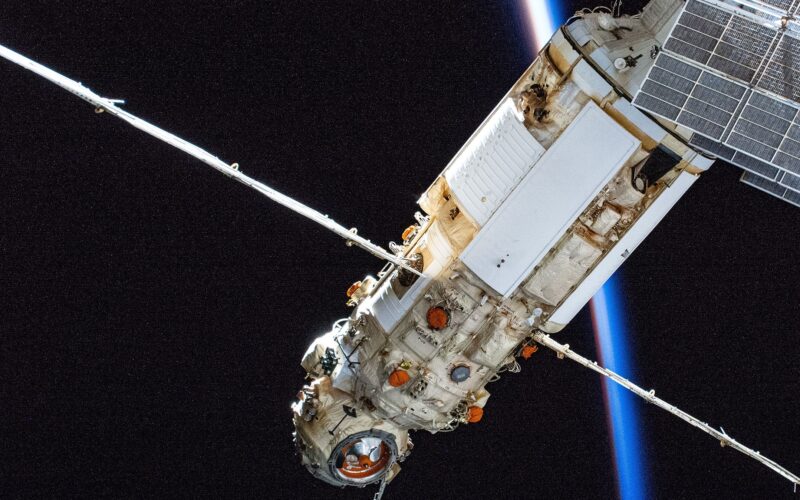The Russian space station laboratory module, Nauka (Science in English) appears to be leaking coolant from an external radiator.
The leak was noticed by both Russian and United States crew members on board the International Space Station (ISS) during routine checks on October 9, 2023.
The incident was confirmed by NASA space station crew member Jasmin Moghbeli, who reported seeing “flakes outside” and traced the source to an external radiator on the Nauka module, also known as the Multipurpose Laboratory Module (MLM).
The external radiator was launched with the Rassvet module in 2010. It was attached to the current Nauka module more than a decade later when it arrived at the ISS in 2021.
While the exact cause is currently unknown, immediate measures were taken to isolate the leak, ensuring the safety of the crew and the station.
This is the third coolant leak on the Russian side of the ISS in less than a year. Similar leaks were reported on Russia’s Soyuz MS-22 spacecraft in December 2022 and the Progress MS-21 cargo spacecraft in February 2023.
Roscosmos acknowledged the leak but stressed that the module itself is operational and there is no urgent cause for alarm.
“The main thermal control circuit of the module operates normally and provides comfortable conditions in the living area of the module,” Roscosmos wrote in a statement shared on Telegram on October 9, 2023. “The crew and the station are not in danger.”
Launched on July 21, 2021, from the Baikonur Cosmodrome in Kazakhstan, the Nauka module docked with the ISS on July 29, 2021.
It was designed to replace the Pirs docking compartment that had been in service since 2001 and was detached from ISS on July 26, 2021, to make way for the Nauka module.
However, two hours after the Nauka module arrived it mistakenly activated its thrusters forcing the entire ISS to move 45 degrees from position. A SpaceX Dragon freighter was placed on standby in the event that the crew needed to evacuate. Fortunately, astronauts were able to restore the station’s attitude by activating the engines on the Russian part of the ISS.

